A dead female North Atlantic right whale calf was found washed up on the beach at Cow Bay in Edgartown Sunday night.
Scientists have yet to determine the cause of death as of Monday afternoon, but the dead calf represents another blow to the critically endangered whale species, which has dwindled to fewer than 360 individuals in recent years.
According to a statement from the National Oceanic and Atmospheric Administration, “preliminary observations indicate the presence of rope entangled near the whale’s tail.”
Since 2017, NOAA has recorded 37 right whale deaths, most of which have fishing gear entanglement or boat collisions as a contributing cause. Only about a third of right whale deaths are documented, according to the agency.
The recent whale carcass was found by a person walking on the beach Sunday. They called the International Fund for Animal Welfare and NOAA. Both organizations had officials at the beach Monday, and IFAW scientists continued work on Tuesday.
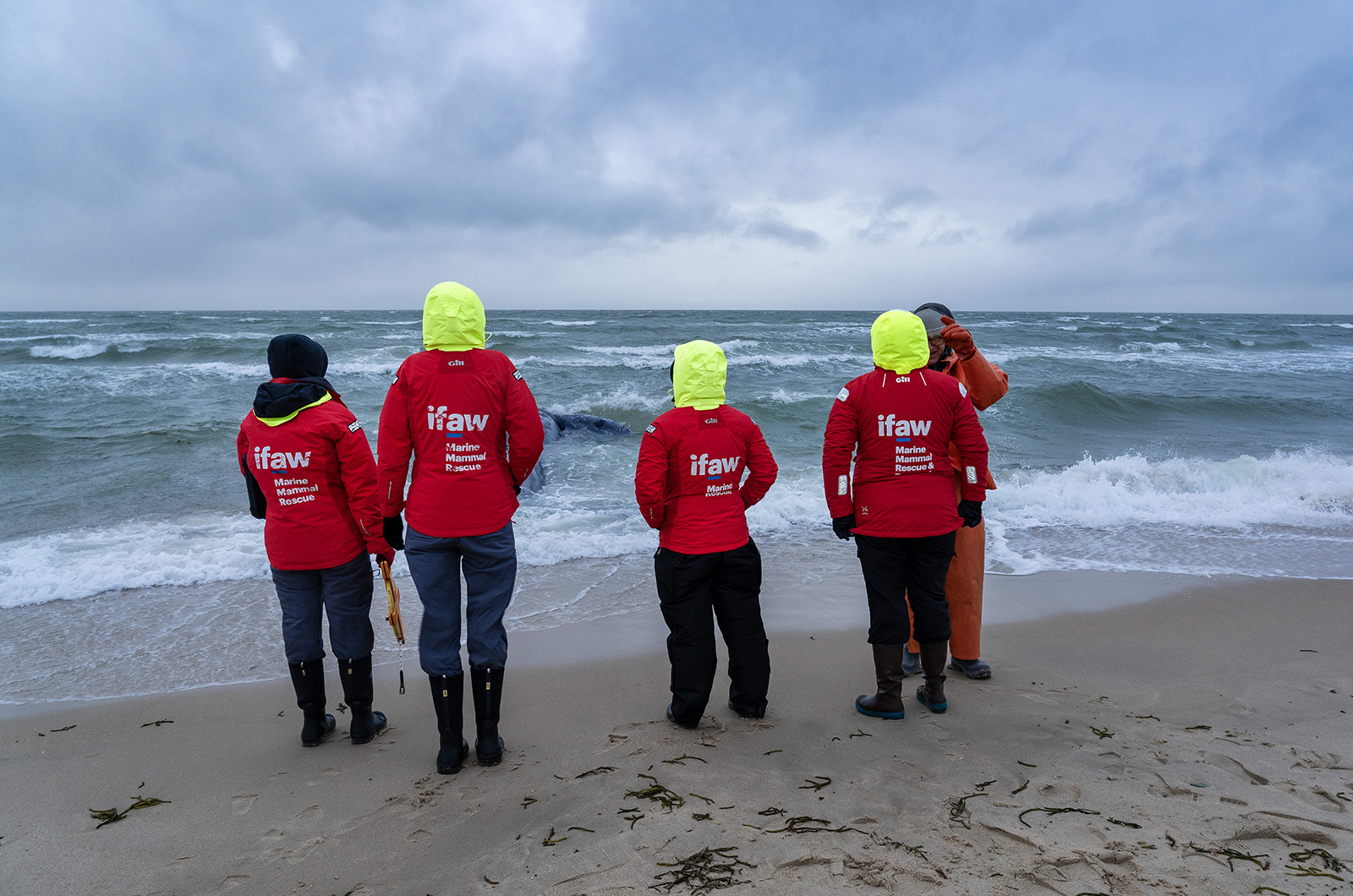
“We had better access to [the whale] today, so we were able to do more,” said Sarah Sharp, a IFAW veterinarian on the beach Tuesday.
Waves rolled over the carcass on the narrow beach that morning, its tail buried in the sand as scientists in bright red and orange hurried about to prepare it for towing out to sea.
“It does have an entangling line around the tail,” Ms. Sharp said, “but in terms of cause of death, we really need the full necropsy to determine that.”
Adverse weather conditions and the positioning of the whale carcass have prevented officials from relocating it for a full investigation. Ms. Sharp said the group is now planning to relocate the whale to tribal land on-Island Wednesday, to prepare for a full necropsy Thursday.
The New England Aquarium keeps a catalog of living right whale individuals, but the one washed ashore on the Vineyard has yet to be identified, Ms. Sharp said.
While other dead right whales have washed up on Island in the past, Woods Hole Oceanographic Institution senior scientist Michael Moore said the location of this carcass is atypical.
“We’ve had a bunch on the south side, it’s unusual on the north side,” he said.
Conservationists lamented the whale’s death this week and hoped it would spur action to help save the species.
“This has been a tragic month for North Atlantic right whales, beginning with news of a calf seriously injured by a boat propeller and now the death of a juvenile female,” said aquarium scientist Philip Hamilton in a statement to the Gazette, referring to a recently injured whale off the coast of South Carolina.
“The time to implement bold protections to protect this critically endangered species from human-caused impacts is now if we are to avoid extinction,” he said.
A team with the New England Aquarium saw right whales south of Nantucket earlier this month and NOAA implemented slow zones for boaters. Right whales are often found in Cape Cod Bay this time of year and an acoustic monitor detected a whale more than 10 miles south of the Vineyard on Sunday.
Gib Brogan, the campaign director at the ocean conservation nonprofit Oceana, said it was devastating to hear about another dead right whale.
“This death is even more troubling when it is a female calf that could have gone on to have many calves of her own for decades to come,” he said. “The recovery of North Atlantic right whales cannot take any more setbacks.”

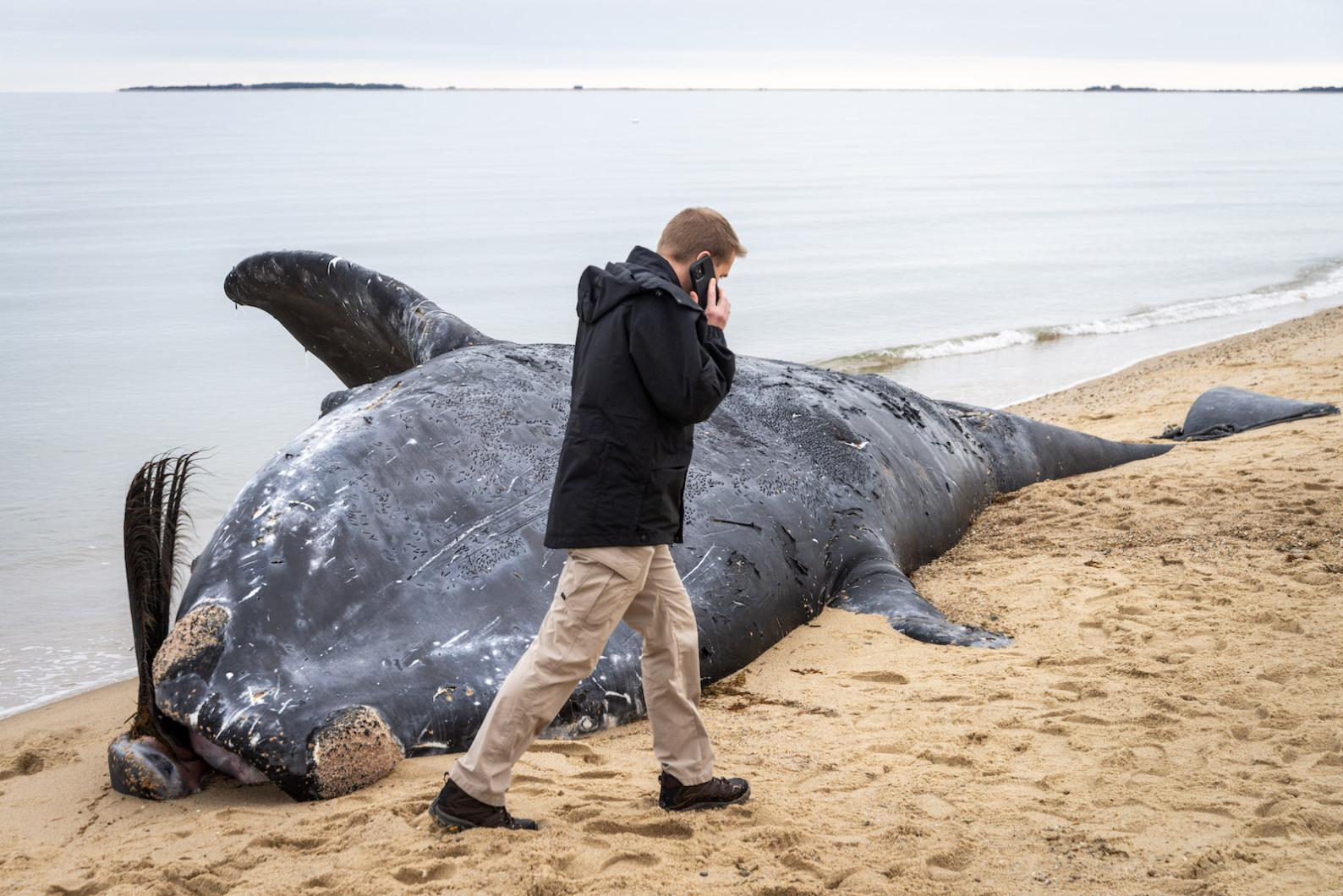
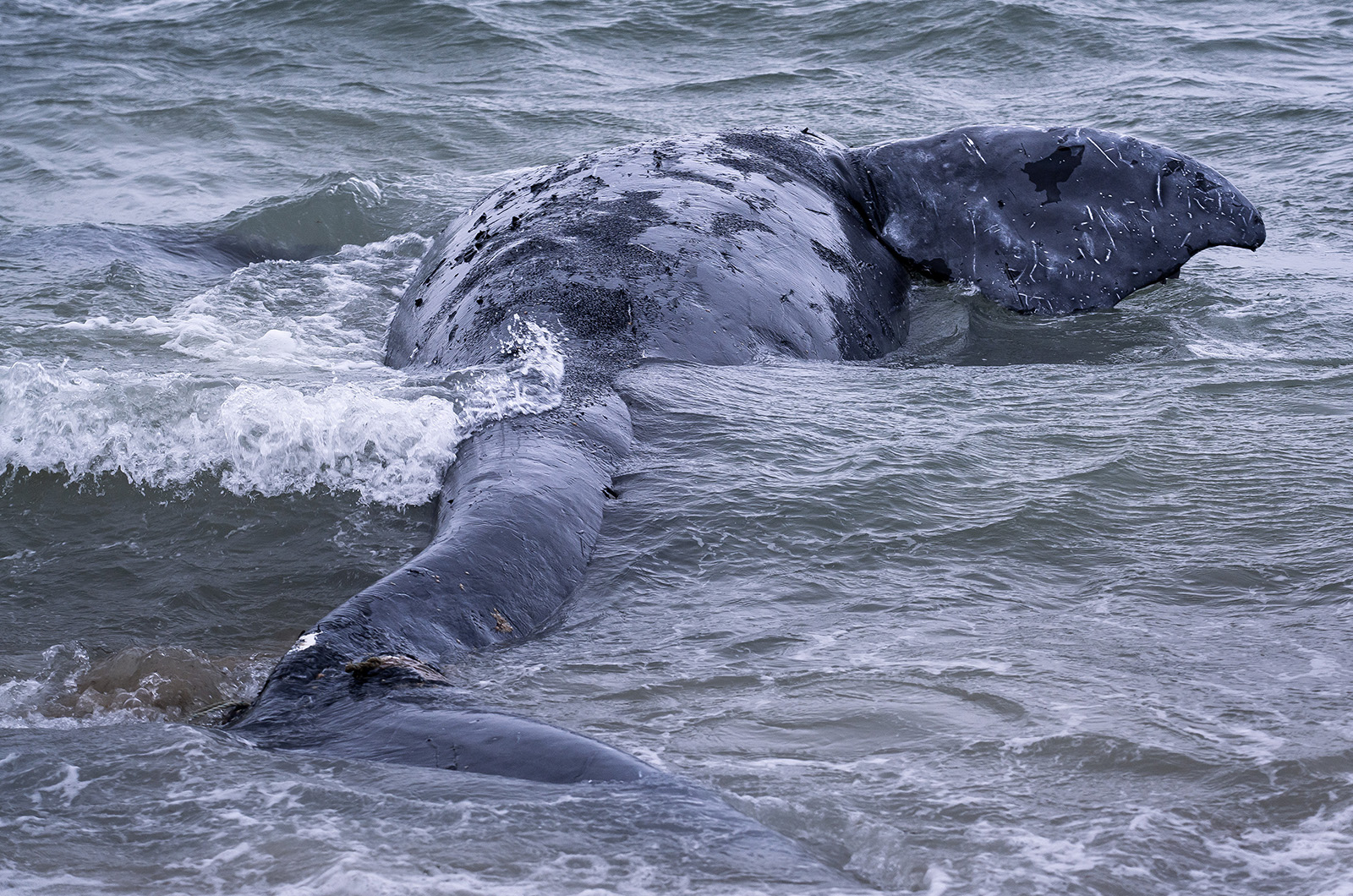
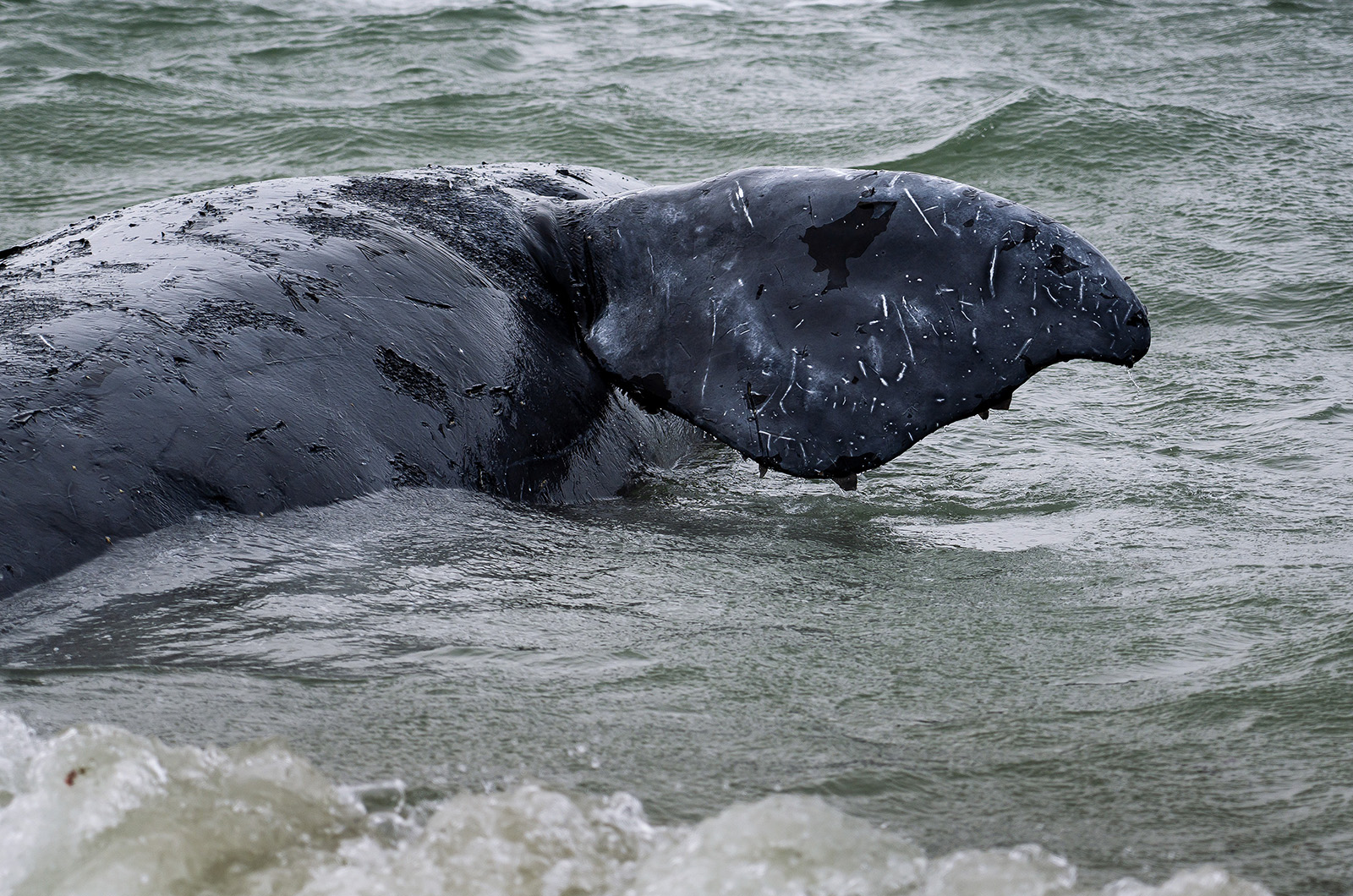
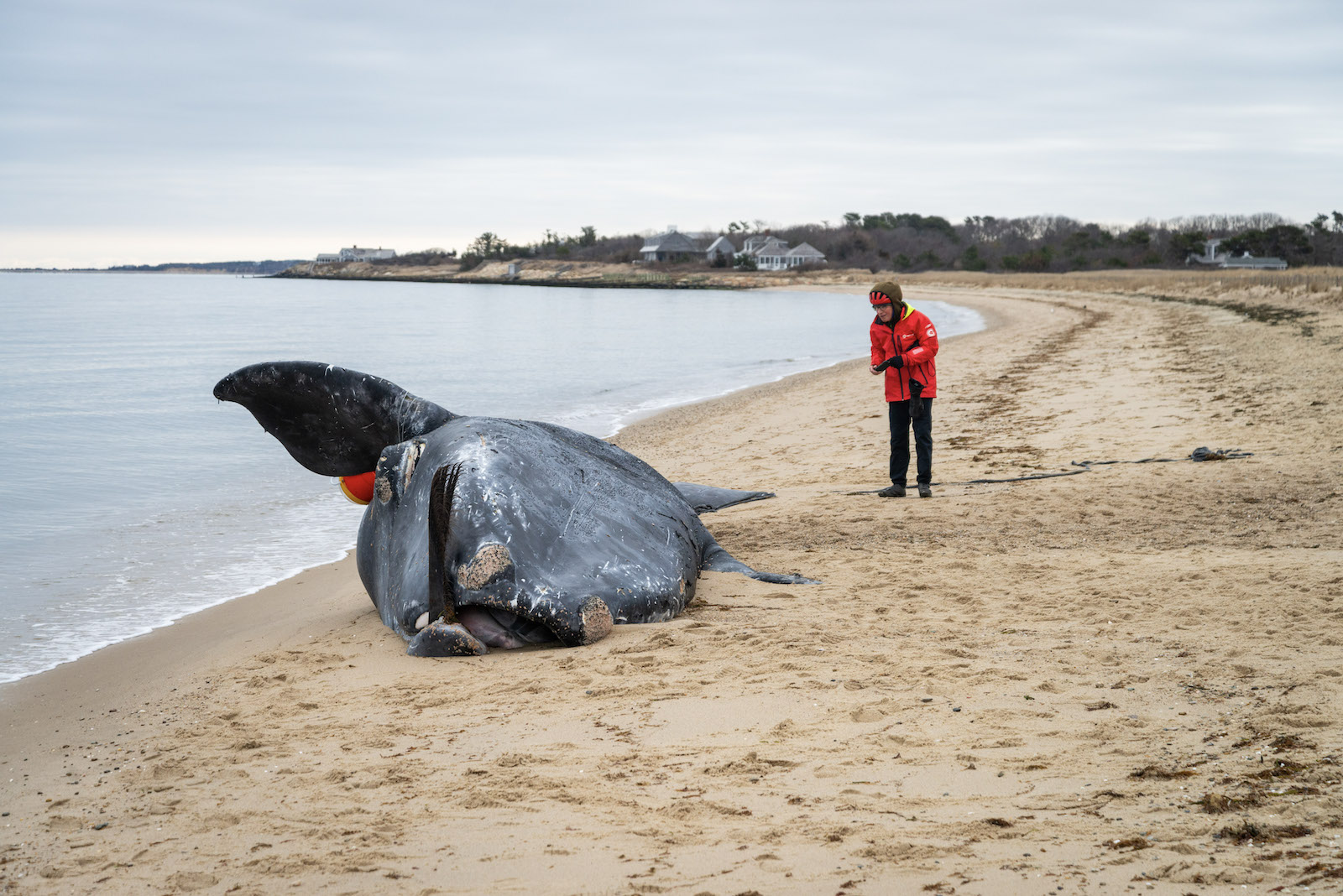





Comments (15)
Comments
Comment policy »